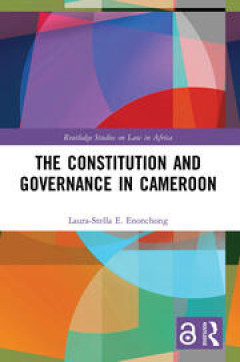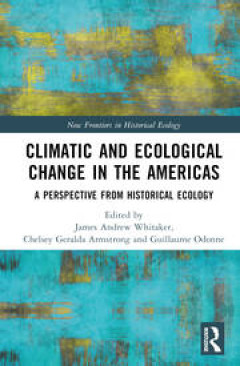Ditapis dengan

Hukum perlindungan anak dan perempuan di indonesia

Metode penelitian hukum normatif dan empiris

Judicial Activism

Legal data and information in practice how data and the law interact

Public law

Kebenaran Tak Terbahasakan : refleksi pengalaman komisi-komisi kebenaran, kenyataan dan harapan

Argumentasi hukum

The Constitution and Governance in Cameroon (e-book)
This book provides a systematic analysis of the major structural and institutional governance mechanisms in Cameroon, critically analysing the constitutional and legislative texts on Cameroon’s semi-presidential system, the electoral system, the legislature, the judiciary, the Constitutional Council and the National Commission on Human Rights and Freedoms. The author offers an assessment of the practical application of the laws regulating constitutional institutions and how they impact on governance. To lay the groundwork for the analysis, the book examines the historical, constitutional and political context of governance in Cameroon, from independence and reunification in 1960–1961, through the adoption of the 1996 Constitution, to more recent events including the current Anglophone crisis. Offering novel insights on new institutions such as the Senate and the Constitutional Council and their contribution to the democratic advancement of Cameroon, the book also provides the first critical assessment of the legislative provisions carving out a special autonomy status for the two Anglophone regions of Cameroon and considers how far these provisions go to resolve the Anglophone Problem. This book will be of interest to scholars of public law, legal history and African politics.

Climatic and Ecological Change in the Americas A Perspective from Historical Ecology (e-book)
This book offers a comparative analysis of the experiences, responses, and adaptations of people to climate variability and environmental change across the Americas. It foregrounds historical ecology as a structural framework for understanding the climate change crisis throughout the region and throughout time. In recent years, Indigenous and local populations in particular have experienced climate change effects such as altered weather patterns, seasonal irregularities, flooding and drought, and difficulties relating to subsistence practices. Understanding and dealing with these challenges has drawn on peoples’ longstanding experience with climate variability and in some cases includes models of mitigation and responses that are millennia old. With contributions from specialists across the Americas, this volume will be of interest to scholars from fields including anthropology, archaeology, geography, environmental studies, and Indigenous studies.

 Karya Umum
Karya Umum  Filsafat
Filsafat  Agama
Agama  Ilmu-ilmu Sosial
Ilmu-ilmu Sosial  Bahasa
Bahasa  Ilmu-ilmu Murni
Ilmu-ilmu Murni  Ilmu-ilmu Terapan
Ilmu-ilmu Terapan  Kesenian, Hiburan, dan Olahraga
Kesenian, Hiburan, dan Olahraga  Kesusastraan
Kesusastraan  Geografi dan Sejarah
Geografi dan Sejarah